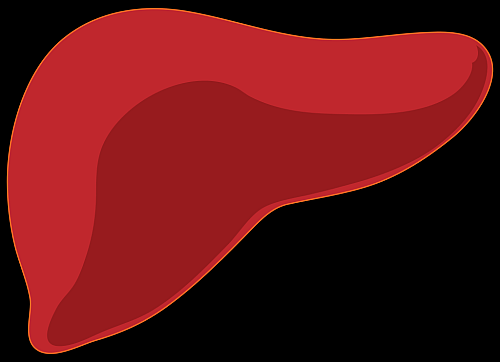24 July 2017. A clinical trial is underway in Europe testing a device that works like dialysis to clear toxins from the blood associated with liver failure, where a transplant is often the only option. The early-stage study, sponsored by Yaqrit Ltd., developer of the Dialive device, reported today enrollment of its first patient.
The Dialive device is designed for individuals with cirrhosis who encounter complications leading to a sequence of failures in the liver, a disorder known as acute-on-chronic liver failure. Yaqrit cites data from transplantation waiting lists showing between 200,000 and 300,000 people in Europe each year experience liver failure. About a quarter of those with liver failure are expected to die within 28 days without a transplant.
The condition results from bacteria in the gut that form toxins on their outer membranes called lipopolysaccharides. In healthy individuals, these toxins are cleared naturally, but in people with compromised livers the toxins build up, leading to inflammation, scarring, and loss of liver function. The Dialive filters a patient’s blood, removing lipopolysaccharides and exchanging damaged albumin, a prominent protein in blood serum, for healthy albumin.
The clinical trial is enrolling 24 individuals with acute-on-chronic liver failure at 7 locations in the U.K., France, Germany, and Spain. Participants are randomly assigned to receive either Dialive treatments for 10 days or the standard of care, which may vary depending on the severity of the patients’ condition. The study team is looking primarily at the safety of the Dialive device, in terms of serious adverse effects or the need to discontinue treatments because of the device.
However, the researchers are also evaluating performance of the Dialive, including removal of toxins and damaged albumin from the blood, and changes in liver functions compared to standard of care. In addition, the study team is assessing any changes in kidney, brain, and immune functions between the two groups of participants.
Yaqrit Ltd. is a spin-off enterprise from University College London, founded by Rajiv Jalan, professor of hepatology and part of the university’s health care engineering institute. The company, based in London, is commercializing research by Jalan and others, including the Dialive. Yaqrit is also creating a preventive and therapy for cirrhosis and nonalcoholic steatohepatitis, where fatty deposits build up in the liver. This treatment, called Carbalive, uses tiny packets of carbon beads delivered into the gut that bind to and remove lipopolysaccharides.
The clinical trial is part of a larger project funded by the European Commission called Aliver to develop the Dialive, and take the device through two clinical trials and regulatory approvals in Europe. If the first trial shows positive results, the second trial is expected to enroll 100 patients with liver failure at 18 sites in Europe.
More from Science & Enterprise:
- Patent Awarded for Exosome Capture Process
- Students Design Prototype Soft Artificial Heart
- Lab-On-Chip Quickly Isolates, Captures Exosomes
- Chip Device Quickly Detects Sepsis in Blood
- Bacteria Engineered to Act as Long-Term Gut Sensors
* * *


 RSS - Posts
RSS - Posts
You must be logged in to post a comment.